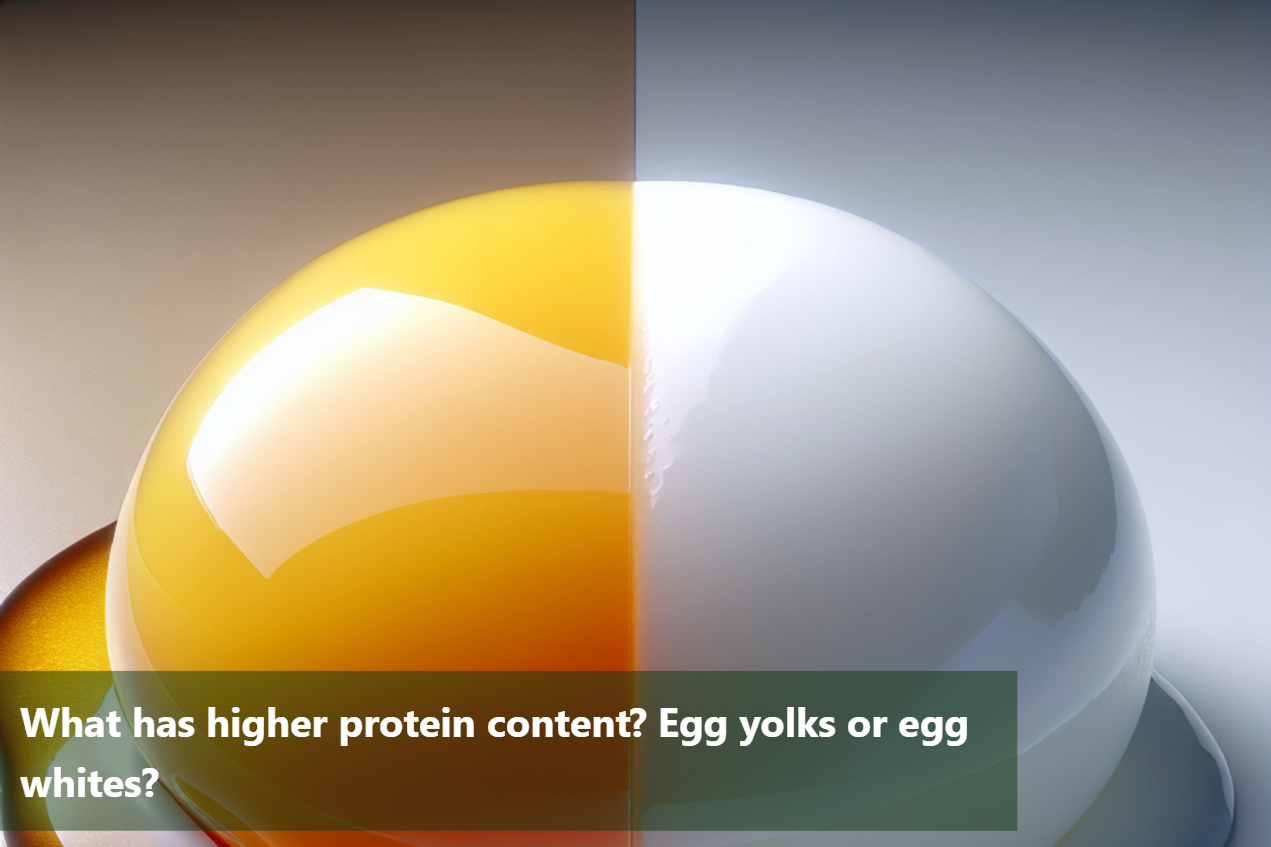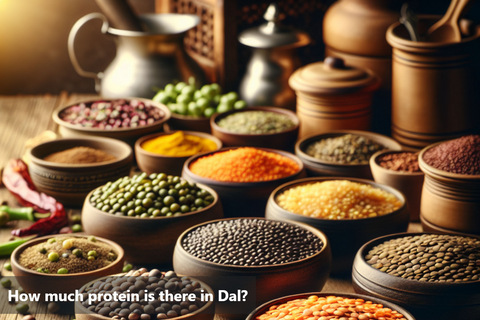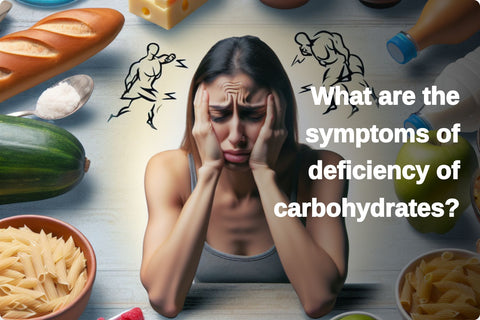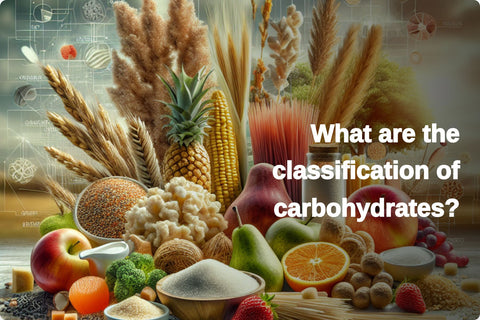
What has higher protein content? Egg yolks or egg whites?
Protein is a crucial component of a balanced diet, playing a significant role in various bodily functions. When it comes to eggs, the distinction between the protein content in the yolks and whites is often a topic of interest for many. Egg yolks contain essential nutrients, such as vitamin D, omega-3 fatty acids, and cholesterol, contrary to the misconception that only the white part is protein-rich. On the other hand, egg whites are known for their high protein content, being a low-fat source of quality protein.
Understanding the nutritional composition of egg yolks and whites is vital for making informed dietary choices. While both parts of the egg provide protein, the white portion is particularly rich in this macronutrient, making it a popular choice among fitness enthusiasts and individuals looking to increase their protein intake. Incorporating eggs into your diet can be a simple yet effective way to boost your protein consumption and support muscle growth and repair.

Nutritional Composition of Egg Yolks
Nutrition Information |
Per 100 grams |
Energy kcals (calories) |
347 |
Energy kJ |
1437 |
Fat (g) |
31.3 |
Saturates (g) |
8.8 |
Monounsaturates (g) |
12.0 |
Polyunsaturates (g) |
5.0 |
Carbohydrate (g) |
0.0 |
Protein (g) |
16.4 |
Salt (g) |
0.13 |
Nutritional Composition of Egg Whites
Nutrients |
Egg White |
Calories |
18 |
Protein |
4 grams |
Fat |
0 grams |
Cholesterol |
0 grams |
Vitamin A |
0% of the DV |
Vitamin B12 |
0% of the DV |
Vitamin B2 |
11% of the DV |
Vitamin B5 |
1% of the DV |
Vitamin D |
0% of the DV |
Choline |
0% of the DV |
Selenium |
8% of the DV |
Comparison of Protein Content
The protein content in egg yolks and whites varies, offering distinct nutritional benefits. Egg whites are renowned for their high protein content, making them a popular choice among health-conscious individuals. On the other hand, egg yolks contain essential nutrients beyond just protein.
When comparing the protein content, egg whites are a powerhouse, providing around 3.6 grams of protein per 17-calorie egg, making them an excellent protein source for those looking to boost their intake without consuming too many calories. The high protein content in egg whites makes them an ideal choice for supporting muscle growth and repair.
Conversely, egg yolks contain slightly less protein compared to egg whites, with approximately 2.7 grams of protein per yolk. However, they compensate for this with essential nutrients such as vitamins A, D, E, and K, along with minerals like iron and zinc. These nutrients play crucial roles in various bodily functions, including immunity and vision.
While egg whites are superior in terms of pure protein content, egg yolks provide a broader nutritional profile. Incorporating both parts of the egg into your diet can offer a well-rounded mix of protein and essential nutrients for overall health and well-being.
Benefits and Side-effects
Egg Yolk
Benefits:
Nutrient-Rich: Egg yolks contain essential nutrients such as vitamins A, D, E, and K, as well as minerals like iron and zinc, which support overall health.
Antioxidant Properties: Egg yolks contain antioxidants like lutein and zeaxanthin, which promote eye health and may reduce the risk of age-related macular degeneration.
Improved Hormone Regulation: Egg yolks contain cholesterol, which is a precursor to hormones like testosterone and estrogen, supporting hormone balance.
Side Effects:
High Cholesterol: Egg yolks are high in cholesterol, so consuming them in excess may raise cholesterol levels in some individuals, potentially increasing the risk of heart disease.
Caloric Density: Egg yolks are relatively high in calories compared to egg whites, so overconsumption may contribute to weight gain if not consumed in moderation.
Allergies: Some individuals may be allergic to proteins found in egg yolks, leading to allergic reactions such as itching, hives, or digestive issues.
Egg White
Benefits:
High-Quality Protein: Egg whites are an excellent source of high-quality protein, containing all essential amino acids necessary for muscle repair and growth.
Muscle Building: The protein in egg whites is easily digestible and quickly absorbed by the body, making them an ideal post-workout snack to support muscle recovery.
Weight Management: Incorporating egg whites into meals can help promote satiety and reduce overall calorie intake, supporting weight management efforts.
Side Effects:
Biotin Depletion: Egg whites contain avidin, a protein that binds to biotin, a B vitamin. Consuming large quantities of raw egg whites over time may lead to biotin deficiency, causing symptoms like hair loss and skin rash.
Allergies: Some individuals may be allergic to proteins found in egg whites, leading to allergic reactions such as itching, hives, or digestive issues.
Risk of Foodborne Illness: Consuming raw or undercooked egg whites may increase the risk of foodborne illness caused by bacteria like Salmonella. It's important to cook egg whites thoroughly to minimize this risk.

Protein Showdown: Egg Yolks vs. Egg Whites
Egg yolks are known for being rich in proteins, vitamins, and minerals. They contain essential nutrients like vitamin B12, vitamin D, and choline, apart from proteins. Consuming egg yolks can be beneficial for overall health and well-being due to their nutrient density.
On the other hand, egg whites are predominantly made up of proteins, with minimal fats and no cholesterol. They are a popular choice among individuals looking to increase their protein intake while keeping their calorie and fat consumption in check.
When comparing the protein content directly, egg whites have a higher protein content than egg yolks per gram. This makes egg whites a preferred option for individuals focusing solely on protein intake.
Both egg yolks and egg whites offer valuable nutrients, but if the goal is to primarily increase protein intake, egg whites stand out as the superior choice. Ultimately, including a balanced consumption of both egg yolks and whites can provide a well-rounded nutritional profile.
This Blog post is an initiative by Lo! Foods, to provide accurate and Nutritionist / Doctor approved information related to Health. Lo! Foods is India's leading brand for Everyday Functional Foods. Foods designed for specific Health conditions or Needs. Lo! Foods also runs India's largest range of Low Carb Healthy Cloud Kitchens, under the brand names of Lo!, ProteinChef, ATH (All Things Healthy) and DiabeSmart.















Leave a comment
Your email address will not be published.